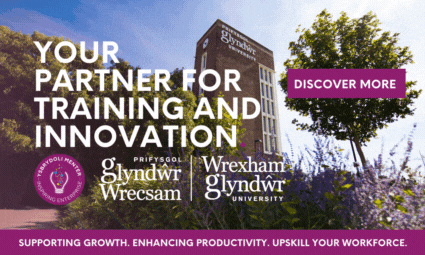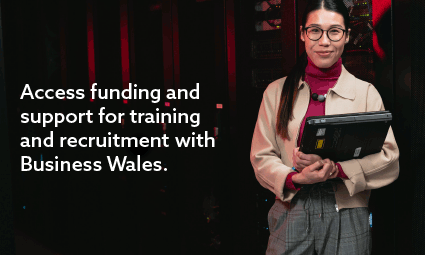 Written by:
Written by:
Ian Price
Director
CBI Wales
______________________________________________________________________________________________________________________________
The world of work hasn’t just changed because of Covid. An ageing workforce, new technology, shifting perspectives on work-life balance, and an increased number of people dropping out of the workforce due to health problems or to manage caring responsibilities.
It all adds up to a whole new employment landscape, and one that compels each of us to really re-evaluate our approach to people and skills. For government, that means better calibrating the education and skills system to real world demand. For businesses, it means adapting to new working practices.
Whatever size of business or sector you operate in, access to people and skills is going to present a challenge in one way or another. According to the Bank of England, UK labour supply will barely grow at all by the middle of this decade. We’re also suffering from worryingly high levels of economic inactivity, with 1.7 million people wanting to work but facing barriers that mean they can’t.
There’s no understating the size and scale of this challenge – it’s one raised by CBI members every day. We’re not looking at a small issue that can be left to overworked HR departments, it’s a pretty seismic shift that impacts every firms’ ability to grow and invest. That in turn puts a handbrake on the whole economy.
Ahead of the Spring Budget, CBI Wales has called for action to boost affordable childcare provision; support employer health interventions – by extending the expenses and benefits system; and change the Apprenticeship Levy into something that works better for businesses across the UK. But we recognise that will take time.
For many Welsh firms, that’s time they just don’t have, with shortages that are both immediate and acute. It’s then that we have to take a look at the immigration system – something we recognise isn’t politically straightforward for the government. That’s why we’re so keen to see joined-up thinking on people and skills needs. Getting all departments to work together to determine a single approach would really help in delivering practical solutions that can work now and lay the groundwork for the future.
From a business point of view, we need to get serious about flexibility. Not just in where we work, but how we work. Flexibility is increasingly the deciding factor for whether to apply for a job or not. Firms that say they offer it are winning the race for talent.
It also means being relentless in how we approach upskilling and retraining, particularly around digital skills – because, let’s face it, every business is a digital business now. Thinking differently about the skills you already have in your organisation, finding new places to look for talent, and challenging yourself about why that talent would look to work with you are also key.
We really are at a crux moment on people and skills. We can’t keep doing the same things and expecting different results. The sooner we all step up, the sooner we’ll reduce inflationary pressure, increase productivity growth and deliver prosperity for all.






